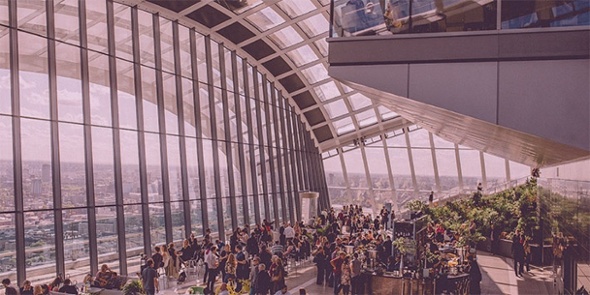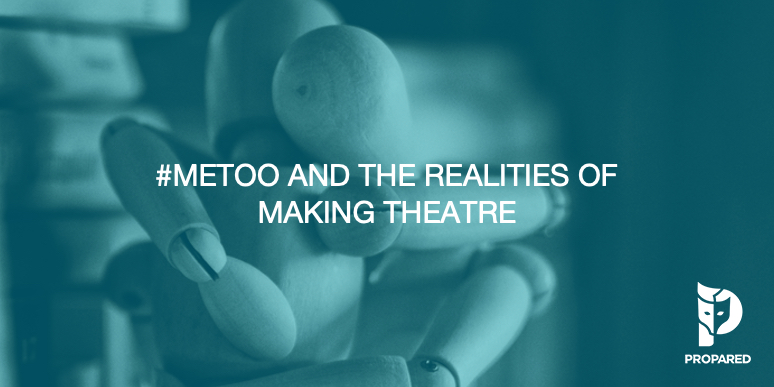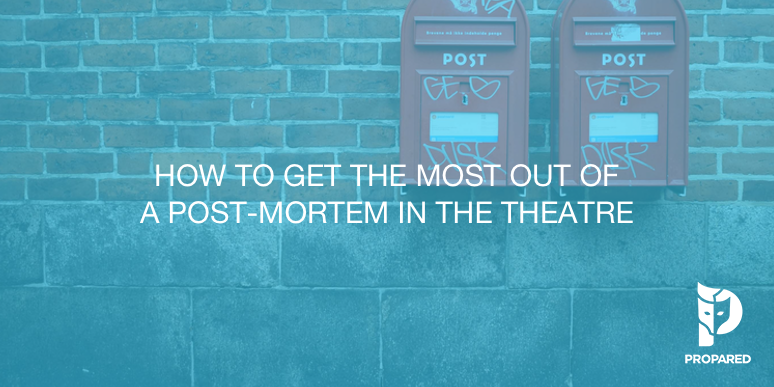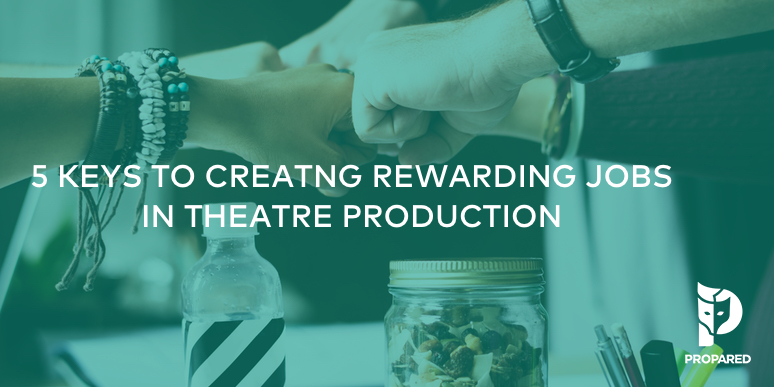
Choosing a venue can be difficult. Every event is different, which translates into a new set of priorities every time out. So to make the process a little less cumbersome, event managers often turn to the two “Big C’s.” Capacity and Cost. That still leaves a lot of leg work to match up the perfect spot for your client’s needs. Thankfully, there are a few other factors to put on your planning checklist that can be just as critical and really help to secure the perfect spot for your event. Spoiler alert: most of them have very little to do with the “Big C’s.”
1. Know Your Audience Journey
Every good event planner has his or her attendees front of mind when making venue decisions. An event with no audience is just a rehearsal! The attendees’ experience is a massive indication of the success (or failure) of your event.
But the attendees’ engagement begins LONG before they walk through the venue doors. They have to get there first! It’s critical that the venue is easily accessible. The harder your venue is to get to, the smaller your turn out will generally be. Less people will come to your destination wedding then if you had it in your home town. A venue close to public transportation or one that has lots of parking may provide an ease of arrival that might set up an attendee to be more receptive to a positive attitude. Now, you may produce events where the difficulty of getting there is part of the experience. Most likely, these are special case scenarios that require a different framework all together. Generally speaking, you want your attendees to feel at ease from the moment they begin the journey to your event. Here are some must-ask questions.
-
Is the venue conveniently located?
-
Are there multiple options for transportation? (i.e., mass transit, train, bus, cab, car, walking, airport)
-
If your audience is driving, is there ample parking?
This is important to note before you even begin to think about whether you are providing transportation or not.
2. Know the Tone
Every event has a desired tone and aesthetic designed to evoke particular feelings from the audience. Often, event managers focus fiercely on elements of the event itself; lighting, decor, music, food. These do most of the heavy lifting. But remember what we just highlighted? An audience’s experience of your event actually begins well before they even arrive at the venue!
Quick reality check: don’t drive yourself crazy. It’s impossible to visualize and map out every attendee’s journey getting to the venue. But there are some basic judgement calls you can make. For example, you may find a really edgy and unique venue but it’s in a seedy part of town. What impressions will this create for your attendees? It may be good or bad but in either way it is important to ask yourself the question. Here are a few others.
-
Is the venue easy find? Is it obstructed, are there bad road signs, or is it down a long alley? How easy is it it to map?
-
Does the surrounding neighborhood work for or against the desired tone of your event?
-
Does the venue itself align with your desired tone and design for your event?
Some of the coolest venues you’ll ever find might still not be the right choice. Remember, it’s about the event and the client.
3. Know the Technical Requirements of the Event
Obviously this will greatly affect the type of venue you choose. Have large scenic elements? Make sure the venue is large enough or can support the weight of the design. Check that the venue has enough electricity and other infrastructure such as heat, water, facilities, rigging points, fire alarms, and emergency egress lighting. Will all of your elements fit into the venue? You’d hate to get to load in and realize your pieces won’t even fit through the door, up the stairs, or around that corner. Venues also often have in-house equipment that comes with the venue price, such as ladders, tables and chairs, lights, audio, or video equipment. This may allow you to cut out the need for a specific vendor at all, which could mean you could spend that money somewhere else. Let’s recap the questions to ask!
-
Are there any of my technical requirements that will have trouble getting into the venue?
-
Does the venue have all of my require infrastructure? (If not, it doesn’t necessarily mean the venue is wrong for you, you just may have to budget the additional costs of equipment, labor, and permits in providing these yourself.)
-
Is there any in-house equipment you could use as part of your venue rental?
4. Know the Venue’s Topography
Say it with me: terrain influences cost. Even a simple load-in pathway can increase your labor costs if it’s on a slope or incline. Setup times may be longer, extending your rental period. Outdoor locations open you up to additional weather hazards such as wind, lightning and rain. Accessibility for any attendees with disabilities can also be greatly affected.
You may find that the surrounding location makes noise a greater issue. Suppose you do a site visit when traffic is light. Only to find out how much heavier traffic is at the start of your event. What about your own noise levels? If your event is going to be loud, you might want to make sure it won’t affect a nearby residential neighborhood or somewhere with noise ordinances in place. To recap:
-
Does the terrain of the venue influence the speed at which you can load-in your event?
-
Does the terrain of the venue restrict access to those with disabilities?
-
Does the terrain or location of the venue open you up to additional weather considerations?
-
Is noise going to be a factor, either from the event or from external sources?
5. Know the In-House/Required Vendors
This can either be a blessing or a curse. Sometimes, working with preferred vendors can greatly reduce your costs and increase efficiency. You benefit from their past experiences of do’s and don’ts in the venue. Most good venues work with good vendors. They offer a wealth of information that make your job much easier. However, it can also sometimes limit your options. Perhaps your client has specific needs that are outside of what the in-house vendors offer. Your choices are to either adjust your client’s design or potentially greatly up your costs. If your elements are custom, you might want to look for a venue that allows you more freedom in vendor choice.
-
Are there recommended vendors? Ask the venue why they recommend them.
-
Are there required or in-house vendors? Ask the venue how flexible they are with custom elements.
-
Are they willing to put you directly in contact with the vendors to ask questions?
With so many details floating around, it’s easy to miss some critical points during your venue selection. By thinking about the entire attendee journey, the tone of the event, and the particulars of what comes “in-the-box” when securing a venue, you’ll find yourself in a much better position to deliver on your client’s expectation. It also hopefully allows you to plan your budget better so you don’t end up with a ton of unforeseen costs at the end.
How’d we do? What other specifics help you choose a venue for an event? Share them with us in the comments below.



